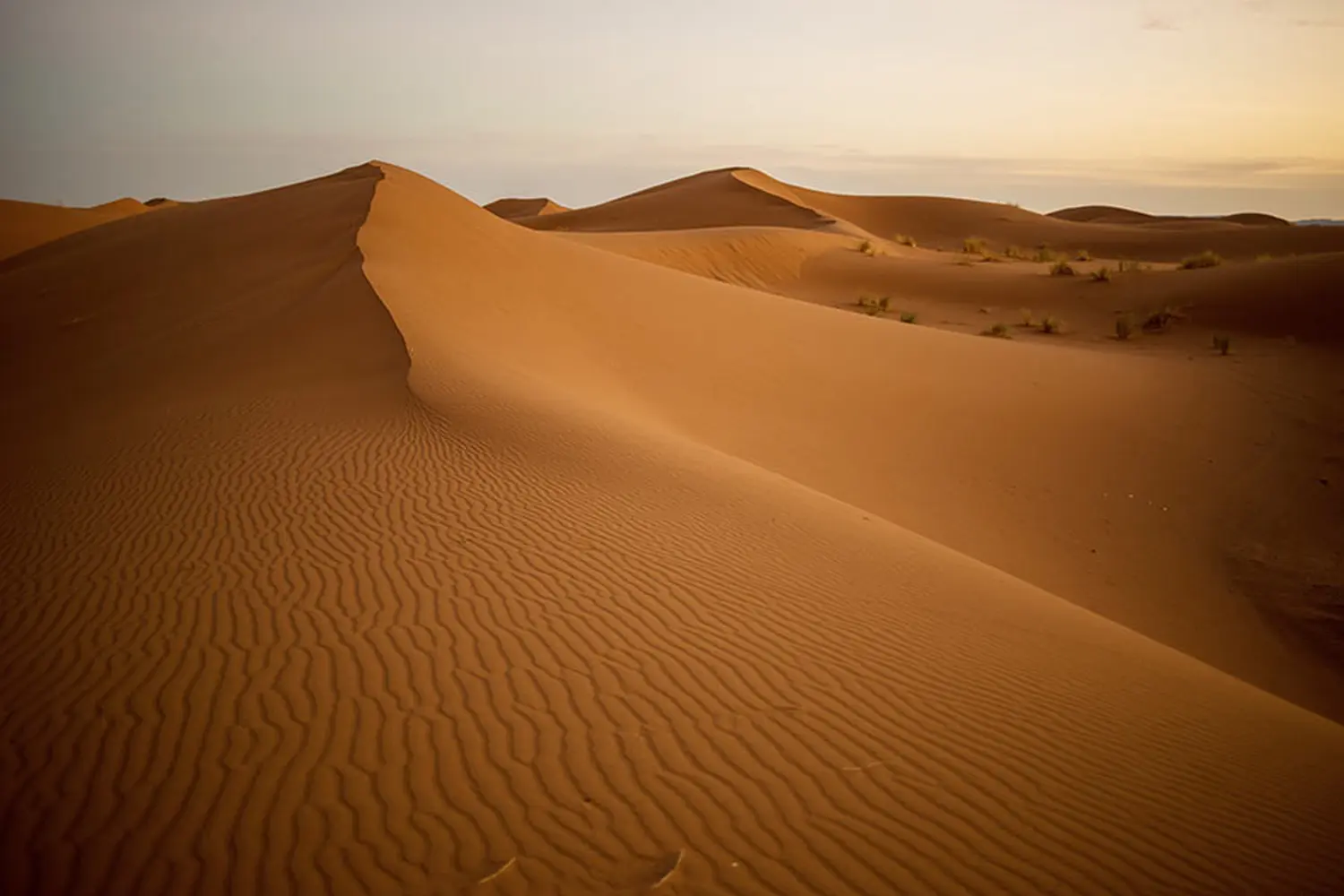Luggage
- 1 daypack
- 1 travel bag or suitcase Clothing: Morocco is an Islamic country, and respect for its culture is a must. Men should avoid tank tops and shorts, while women should avoid off-the-shoulder tops, low-cut tops, and short skirts or pants.
- Cotton T-shirts
- Long-sleeved, thin shirt for more sun protection
- Sweater or zip-up hoodie for cooler evenings during the colder season (November to February)
- It's best to wear layers of clothing. Light, airy, windproof clothing Light, sturdy, and well-worn (hiking) shoes; sneakers are also acceptable Second, light pair of shoes, such as sandals or flip-flops
Useful items
- Headwear, e.g., a cap, hat with a fastening, or a chech (the long scarf used by desert dwellers to protect themselves from wind and sun)
- Good sunglasses with 100% UV protection
- Sunscreen cream or lotion with a high SPF (at least SPF 30)
- Sunscreen lipstick (high SPF)
- Multifunctional pocket knife
- A torch or a head lamp
- Camera and charging cable; a fully charged spare battery is recommended.
- A tightly sealed container to protect your camera from sand
- Power bank for your smartphone
Medications
- Personal first aid kit
- Electrolyte powder to compensate salt and water loss
- Bandages and blister plasters
- Nail scissors and tweezers
- Disinfectant spray
- Painkillers
- Wound healing ointment
Money and documents
- List of important addresses and phone numbers
- International health and accident insurance
- Valid passport (valid for at least 6 months) + copy
- Flight tickets
- Travel money or credit card
- Please bring money in your local currency; exchange for Moroccan dirhams is only possible in Morocco.
Advices for a multi-day dromedary trek
The luggage
A travel bag is easier to store on the dromedary than a suitcase. However, you can also pack the items you want to take with you during the trek in an odrenary soft bag, and we will safely store your "main luggage" in M'Hamid until your return.
The use of water
- We use water on our trips primarily for drinking, making tea, and cooking. It can also be used for washing hands and feet, and brushing teeth.
- We cannot and do not offer you a shower during the trek.
- Do not use soap at water sources or wells, as this can render the water unfit for drinking.
- During the day, do not cool your head with cold water. While this may provide a short-term refreshing sensation, it disrupts the body's thermoregulation and can cause severe headaches or even heatstroke.
Handling waste and used toilet paper
- Please collect any waste you encounter along the way in a bag or plastic bag (5-liter garbage bag), which will be collected at the campsites.
- Collect used toilet paper in sealable bags. Please do not bury it, as the wind will blow it out again in a short time! That's disgusting!
- Your waste bags will be put in large garbage bags at the overnight campsite.
Handling summer temperatures
- T-shirts and shorts are unsuitable. You lose too much water through unprotected skin, and a lack of sun protection is often the cause of diarrhea and headaches.
- Head protection against the sun is essential. In strong winds, you also need neck and face protection because of the sand. The most proven option is the traditional chechs, long scarves used to protect the head, face, and neck. Anyone interested can buy this "scarf" in M'Hamid. They are sold there by Mr. Ibrahim, an old man from the village who earns his living with it. Our guides will show you how to tie the "scarf" and, of course, will help you frequently.
- Always carry water with you, drink enough, but only in small sips. You will always have a good supply of drinking water.
Dealing with the dangers of the desert
- (this sounds very dangerous, but it's good to know. I've been to the desert countless times, and have only seen two scorpions and no snakes yet).
- To avoid contact with scorpions, don't leave your clothes lying loose on the ground, and check and shake them thoroughly before putting them on!
- Only take your sleeping bag out of the pack before crawling in, and pack it back in immediately after getting up!
- Check your shoes before putting them on, and don't walk barefoot at night!
- Don't sleep near the fire place! Danger of fire from flying sparks.
- Never reach into piles of stones, rubble, or wood, or other crevices or hollows in wood or stone!
- Don't stray too far from the group, i.e., don't go out of sight.
- Never leave the camp at night without a flashlight, don't go further than absolutely necessary, and follow your footsteps back to the camp.
Please always remember
- We are in an Islamic host country, which means eating with the right hand.
- Alcohol is not tolerated by everyone.
Clothing:
- Modest clothing should be worn in public. Shorts or short skirts, as well as off-the-shoulder clothing, are discouraged.
- For couples, hugging and kissing is only permitted in private.
- We travel as a team, which also means that helping hands are always welcome when setting up and dismantling camps and feeding and loading the camels. :-)
You can find a relatively reliable weather forecast by entering your destination in Morocco at https://www.wetter.com/.
To get the weather forecast for M'Hamid and Erg Chegaga, enter Zagora
